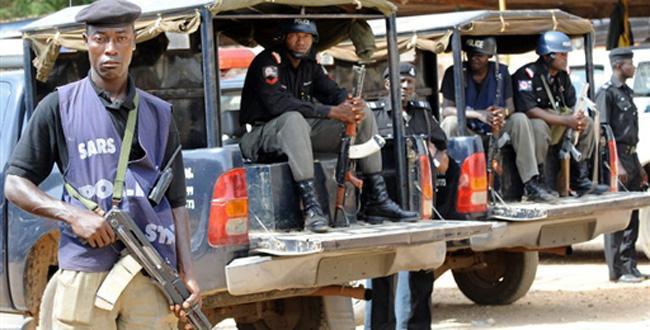
The unlawful arrests of well-to-do–looking Nigerians, executions of detained accused persons, use of torture and rape in detention, and other gross violation of human rights are reasons Nigerians revolted in October 2020, a report has said.
The report by Action Group on Free Civic Space (AGFCS), tagged: ‘Police Brutality, Protests and Shrinking Civic Space in Nigeria’ reveals chilling brutality meted out to Nigerians by officers of the defunct Special Anti-Robbery Squad (SARS), which led to the expression of rage last year.
The group, a coalition of non-profit organisations, with support from the Fund for Global Human Rights (FGHR), said the report was a fact-finding mission that documented 12 established patterns and motivations for extreme violence by SARS operatives in different parts of the country.
Patterns
Some of the patterns include the deployment of SARS to settle personal scores; use of pseudonyms to disguise their real identities; prolonged detentions, including denial of access to family members and lawyers; use of torture to elicit information from victims or to request bribes to facilitate their release; killing detainees for fun and according to mood swings; and deliberate starvation of detainees with intent to kill slowly and without proof.
Others are incriminating innocent persons; keeping detainees in overcrowded cells; forcing them to sleep in shifts on top of each other or to sleep while standing; keeping decomposing dead bodies in the cells in exchange for freedom; trading of dead bodies especially to the university teaching hospitals in Nigeria; and politicians also using SARS as a willing tool of oppression to deal with perceived political enemies and oppositions.
Police spokesperson Frank Mba did not immediately respond to requests for comments on the report. Phone calls and text messages on Friday afternoon were not responded to.
Apart from the extreme torture and other cruel treatments of arrested persons in Nigeria, the report identifies the over-centralized, under-resourced and ill-equipped nature of the Nigerian Police Force as factors.
“The personnel routinely carry out summary executions of persons accused or suspected of crime; rely on torture as a principal means of investigation; commit rape of both sexes, with a particular focus on sex workers; and engage in extortion at nearly every opportunity.
“Further aggravating the situation, the recruitment process into the police force is compromised, leaving the police with a poorly trained, badly paid workforce that is prone to corruption and violence,” the report says.
It further says many police officers lack the skills to investigate organized crimes and gather evidence and thereby resort to profiling people on the street, openly harassing and extorting suspects as patterns of investigation.
The report also exposes the notable euphemisms used to disguise treacherous police conduct, such as ‘sent to Abuja’, meaning the detainee has been executed; ‘travelled,’ meaning that a detainee had been summarily executed; and ‘ambulancing,’ referring to the practice of compelling inmates to play the role of an ambulance.
“Security operatives would make detainees carry dead persons who died in the cell from torture or starvation to the back of the torture hall where their bodies are later disposed of,” the report continues.
“These bodies are, for the most part, hidden and buried secretly in unmarked graves. The bodies are usually framed up as having been killed during a gun battle between SARS and armed robbers. Labelling them off as armed robbers provides legal justification for police officers to use maximum force to protect public safety.”
Speaking on the role of the government, the reports says successive Nigerian governments only pay lip service to police reform.
Recommendations
The group recommended that the Nigerian government look into all cases of and allegations of unlawful detention, extortion, torture and human rights abuses committed by any personnel of the police force, including the defunct SARS.
“The Nigerian government should embark on a strict and conscious implementation of the Police Act 2020, to ensure security agencies operate with civility, responsibility, professionalism, and restraint.”
The group urged the Human Rights Commission to enforce discipline in the Nigeria Police Force and expressly prohibit officers from harassing and brutalising citizens.
They also called on the Nigerian government to support and grant full access to civil society groups and watchdogs independently collecting evidence of violations, and providing legal representation to victims.
END

Be the first to comment